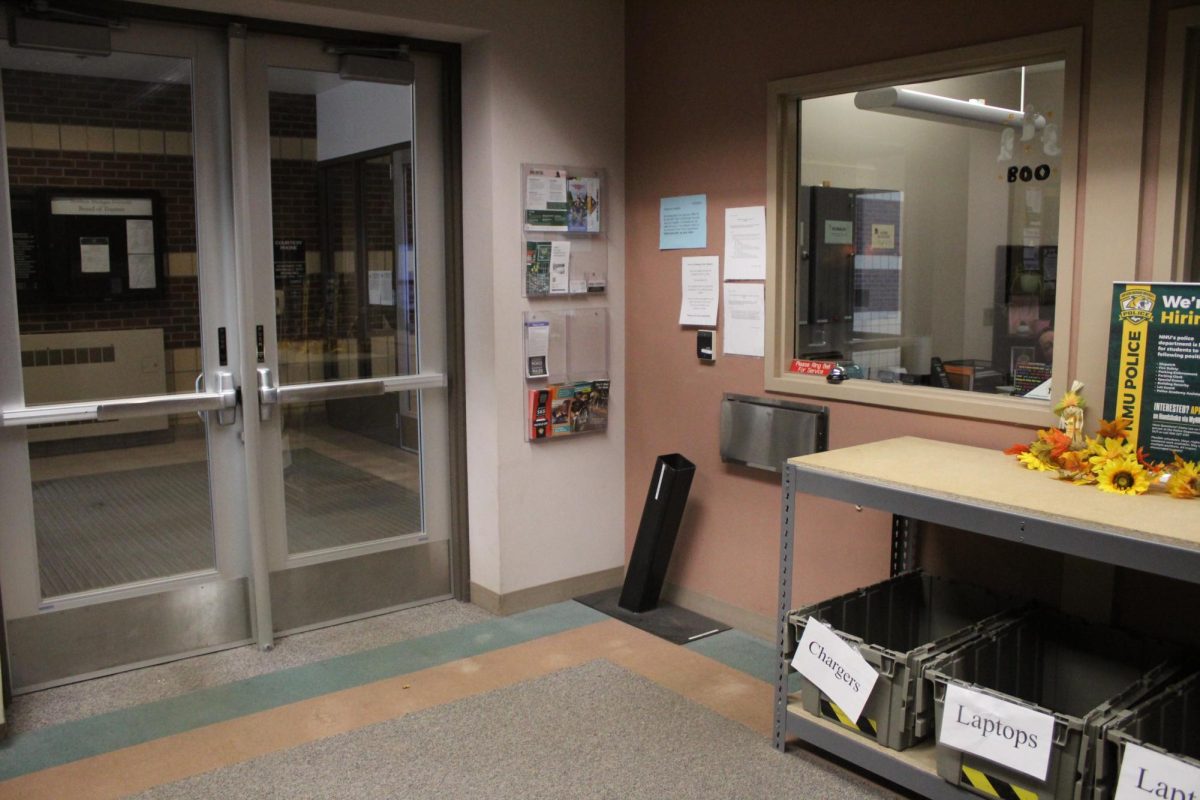As a variety of groups at Northern make an effort to increase campus diversity, ASNMU and OUTlook are proposing a policy to Housing and Residence Life that would provide an opportunity for people who want to take gender out of the question.
Some students at Northern, following in the steps of many colleges across the country, are suggesting gender-blind housing.
Often associated with transgendered students who do not identify solely with one gender, this type of housing will potentially allow any student on campus to room with anyone else, regardless of sex.
“The purpose is to provide a more comfortable and safer living environment and to make sure that our students, who are forced to live in the dorms for two years, have an environment that they can feel secure in,” said sophomore Jason Morgan, ASNMU down-campus representative and political science major.
Morgan, working with an OUTlook committee focused on raising awareness of gender-blind housing, created a proposal that details the approach: one house in a residential hall would be designated as gender-blind, and students could request that house on their application.
At a March 25 meeting, Morgan and Carl Holm, director of Housing and Residence Life, discussed the proposal and the possible pros and cons.
“We just met and started talking about it . asking the questions, what would the goals be, what are some of the implications of working on those goals,” Holm said. “Really, we just opened the book.”
Morgan and Holm expect a decision to be reached by next year.
“We may decide at the end that we’re not going to do anything different, but I expect next year would be a year of taking a look at what our options are and how we are to proceed,” Holm said.
In the meantime, research will be done on how this has worked at other colleges and how it is expected to work at Northern. According to Morgan, other colleges in Michigan with gender-blind housing include the University of Michigan, Eastern Michigan University and Oakland University.
Wesleyan University in Connecticut was the first in the nation to introduce gender-blind housing in 2003.
Morgan said that some of the resistance he expects to face while pushing for gender-blind housing is in the fact that this change will cause more work for Housing and Residence Life.
“It could possibly cause a little more work for them but, you know, they’re here for students,” Morgan said. “It’s their job to make sure students feel . comfortable in their living environment. We’re hoping they’re willing to take on that additional work to make sure that all students feel secure.”
In the 22 years that Holm has worked as director, he has dealt with one transgendered student who did not want to identify as male or female, Holm said.
“We worked with that student very closely in an effort to be as accommodating and respectful of that person’s needs, and I thought . that we had handled it very well,” Holm said.
He said, however, there may be other students who feel similar but do not speak up.
Liz Nutt, a junior biology major, is putting on presentations across campus to introduce students to the idea of gender-blind housing. These presentations begin with an episode of a mini-series called “Transgender Nation” to illustrate obstacles that transgendered college students face, specifically with housing. After the episode, she answers questions from the audience.
According to Nutt, a transgendered person is someone whose gender does not fit into the traditional binary of male or female.
Nutt sees gender-blind housing as an opportunity for a person who may be transgendered or anyone who feels uncomfortable in their current situation to have a new opportunity without asking for special attention. Students do not have to be transgender to utilize gender-blind housing.
“There is something certainly to be said about accommodating individual students needs, but there is also something to be said about anticipating the needs of students ahead of time,” Nutt said.
According to Morgan, the biggest obstacle involved in the formulation process is getting the message across that gender-blind housing is not an opportunity for heterosexual couples to live together.
Examples of eliminating this possibility include making the roommate assignment random or making an obvious rule that living with one’s girlfriend or boyfriend is prohibited, written clearly at the top of the housing application, for instance. Morgan admitted that this would be hard to enforce.
Nutt acknowledged that this dilemma may also be cause for unease among parents of potential Northern students.
“Some parents may be concerned that their son or daughter would utilize gender-blind housing specifically to room with someone of the opposite sex and therefore to pursue a relationship,” Nutt said. “That’s not the purpose of gender-blind housing. If you want to cheat the system (to stay with your partner), then you can cheat the system whether there’s gender-blind housing or not.”






















